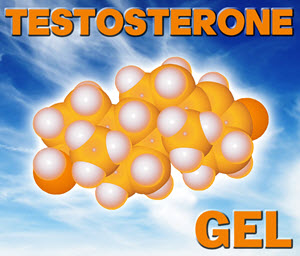Many of the symptoms of low testosterone levels (aka “Low-T”) are well-known: no energy and constant tiredness; weak, shrinking  muscles, an ever-growing accumulation of pounds and flab, especially around the belly; a sunken libido; worsening joint aches and pains, insomnia, and depression over the adverse health developments that aging and Low-T bring.
muscles, an ever-growing accumulation of pounds and flab, especially around the belly; a sunken libido; worsening joint aches and pains, insomnia, and depression over the adverse health developments that aging and Low-T bring.
But there is a lesser-known symptom of Low-T: Brain Fog
Brain fog? Mental confusion? Difficulty concentrating? Are these unwelcome guests possibly a result of lower testosterone levels? YES! Here’s why.
While the main reasons for men seeking Testosterone Replacement Therapy (TRT) are to pump new life into a slumbering sex drive, experience a wave of energy, and feel younger, researchers have found that testosterone does more...much more...including boosting cognition and clearing out mental cobwebs.
Initially, this may seem contradictory. But the ancient Greeks knew that the body and mind are one and function as a complete unit. Problems in the physical realm affect the mental, and the opposite is true.
Two thousand five hundred years later, researchers scientifically verified ancient wisdom. Testosterone is a hormone categorized as an androgen. Researchers have found specific androgen receptors in the brain that act as light switches that only androgen hormones can turn on.
Studies have shown that testosterone can cross the blood-brain barrier. This barrier protects the brain by keeping out harmful substances that could damage the brain. The barrier also allows other substances to cross (like certain medicines). Researchers have also discovered that testosterone has protective effects on the brain, such as:
- extending nerve cell life
- promoting nerve cell regrowth after damage
- easing the adverse effects of nerve damage
- controlling inflammation in the nerves
These are a few potentially protective benefits to the brain that scientists believe testosterone may provide, and researchers are confident they will uncover more testosterone benefits in future studies.
Mental functioning declines with aging, and testosterone levels also drop with aging. Some studies have indicated that men suffering from Low-T tend to have lower mental function than men the same age who have higher testosterone levels.
As noted earlier, Low-T causes symptoms such as erectile dysfunction (ED), a diminished sex drive, excessive weight gain, fatigue, shrinking  muscle, and a loss of strength.
muscle, and a loss of strength.
People tend to associate these conditions with low testosterone, but Low-T can also cause symptoms that are hard to connect the dots to testosterone. Here are a few of them:
- impaired memory
- irritability
- depression
Suppose you suffer these symptoms and can’t determine an underlying cause (lack of deep, restorative sleep, being an inactive “couch potato,” or eating fast foods and over-processed slop). In that case, low testosterone might be the main culprit.
Most studies linking testosterone with boosting cognitive function are on elderly men since they may be more prone to memory function. But if young men are experiencing the primary symptoms of Low-T, they may also see an improved thought process as a result of TRT.
What happens if low testosterone is not treated?
See the symptoms above (disappearing libido, smaller, weaker muscles, erectile dysfunction, and fatigue. If left untreated, these symptoms will only worsen.
Those who have fallen prey to low testosterone may also find it challenging to focus and experience depression, yet fail to make the connection between their symptoms and Low-T.
Low-T can assuredly adversely affect your life, particularly your sex life, which is a critical component of your physical, mental, and emotional overall health and well-being. If left untreated, low testosterone can weaken bones, which ramps up your risk for osteoporosis.
Remember, low testosterone can affect your energy levels and thinking, contributing to brain fog.
Our clinic is here to help.
At our clinic, we specialize in Hormone Replacement Therapy (HRT). Our hormone replacement treatments include Testosterone Replacement Therapy (TRT), Human Growth Hormone (HGH) Replacement Therapy, Sermorelin Replacement Therapy, and any other type of hormone imbalance that needs to be addressed.
In addition to hormone restoration, we take a holistic approach to health and longevity.
Our treatment regimens included a detailed, comprehensive, and personal nutrition review, a personal fitness program, the importance of sleep, proper hydration, intelligent use of nutritional supplements, methods of stress reduction, and minimizing any toxins in your immediate environment. We leave nothing to chance.
Contact us for a FREE, no-obligation concerning the incredible benefits of Testosterone Replacement Therapy (TRT)!
Contact Us Today For A Free Consultation

- Is it Low T? - Video [Last Updated On: January 14th, 2025] [Originally Added On: November 2nd, 2012]
- Low T Help | Increase Testosterone | Is it Low T [Last Updated On: January 6th, 2018] [Originally Added On: November 27th, 2013]
- Is It Low T - Testosterone Hormone [Last Updated On: November 27th, 2013] [Originally Added On: November 27th, 2013]
- Is It Low T Quiz Was Written on Toilet Paper [Last Updated On: May 4th, 2015] [Originally Added On: March 9th, 2014]
- Is It Low T Testosterone Hormone [Last Updated On: November 7th, 2020] [Originally Added On: May 11th, 2014]
- Does My Husband Have Low T? [Last Updated On: November 19th, 2020] [Originally Added On: November 12th, 2014]
- Testosterone Replacement Beneficial for Modern Men? [Last Updated On: September 17th, 2023] [Originally Added On: February 11th, 2020]
- Relationship Among Benign Prostatic Hyperplasia, High Testosterone, and Diabetes [Last Updated On: February 21st, 2024] [Originally Added On: May 27th, 2020]
- Twenty Facts You May Not Know About Testosterone [Last Updated On: February 17th, 2024] [Originally Added On: June 8th, 2020]
- Testosterone Creams for Low Testosterone Treatment and Andropause [Last Updated On: May 6th, 2024] [Originally Added On: August 10th, 2020]
- Thirteen Reasons That You May be Losing Your Sex Drive [Last Updated On: May 11th, 2024] [Originally Added On: February 20th, 2021]
- Testosterone for Women: Is it an Option Worth Considering? [Last Updated On: May 18th, 2024] [Originally Added On: February 23rd, 2021]
- Testosterone cream and gel for supplementation treating hypogonadism [Last Updated On: September 15th, 2023] [Originally Added On: March 13th, 2021]
- Low T - My life was falling apart because I had low testosterone [Last Updated On: November 14th, 2024] [Originally Added On: April 25th, 2021]
- Ego Might Be Driving Men Towards Testosterone Injections, But it Really Does Improve Many Health Conditions [Last Updated On: September 17th, 2024] [Originally Added On: July 19th, 2021]
Word Count: 729





















